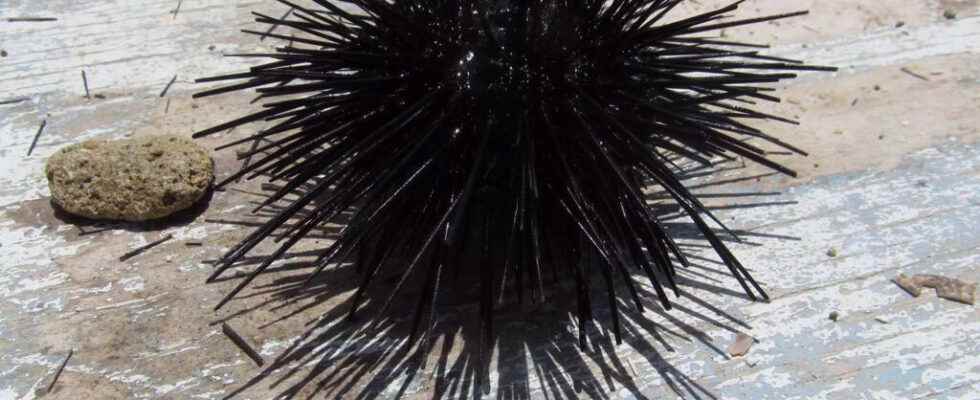In Guadeloupe, marine biology experts are concerned about massive mortality affecting diadem sea urchins. This herbivorous species, essential for the balance of coral ecosystems, had already been decimated in the 1980s by a mysterious disease. A similar scenario seems to be happening.
Among diadem sea urchins, it’s a hecatomb. In the space of a week, divers off the west coast of Basse-Terre, Guadeloupe, saw these sea urchins suddenly lose their long black spines. The biologists themselves saw nothing coming.
The attack was so rapid that they had no time to identify the evil responsible. A vast sampling campaign has just been launched. The AGRRA website allows divers to report other sea urchin deaths.
The first diadem sea urchins that had the quills falling off and were then attacked were at the end of April/beginning of May.
Jean-Christophe Belivier, diving instructor at the Heures Saines center, facing the Cousteau reserve, west of Guadeloupe
At first glance, it would be an epizootic – a contagious disease that strikes animals, and which would affect the whole of the Caribbean. The Virgin Islands, further north, had already sounded the alarm in February. Since then, Jamaica, Dominica, St Vincent and Martinique have made the same observation.
This worrying disappearance does not bode well for the coral reef. The diadem sea urchin, a herbivorous species, prevents algae from invading corals. According to the Biology of Organisms and Aquatic Ecosystems Laboratory (BOREA), only 20 to 30% of living corals remain in the region.
